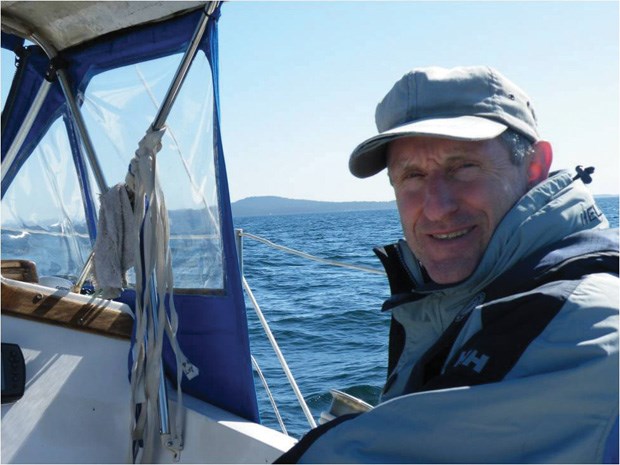Geoff Baile can't help but get a little anxious every summer when hundreds of pleasure boats crowd into the waters of English Bay for the annual fireworks displays.
That's because as the darkness descends the chances of problems out on the water rise.
And it's not just at the pyrotechnical event - the dangers of boating at night provide a real concern, mostly because there is no requirement for vessel owners to be formally educated on how to operate after dark.
"Thankfully, most boat owners don't go out after dark," said Baile, a Steveston resident who is bringing decades of experience to his presentation, Being on the Water at Night, to the Vancouver Boat Show this Friday and Saturday (Jan. 24 and 25) at BC Place Stadium.
Sometimes, when they do, tragedy can occur such as the loss of five lives onboard a power boat following the fireworks show in the late 1990s.
In the inky darkness the boat had positioned itself in between a tugboat that was towing a barge, and ended up colliding with the barge and sank.
"At night, a whole new list of variables come into play," said Baile, who has sailed B.C.'s coastal waters for the past 22 years and was one of three young men aboard a 32-foot, wooden sailboat leaving Newfoundland and arriving in the Azores mid November of 1978.
Most of the time unexpected circumstances at night can pose a threat, but with some specific education on how to operate when the sun goes down, the chances for an uneventful voyage are increased.
"And often, it's not just one, single item that is responsible for problems on the water at night," Baile said.
The bare necessity is the ability to navigate properly at night, Baile said, adding how to recognize different types of vessels based on their lights is another key skill.
Plus, some very basic precautions should be followed, and all too often are not.
"Ninety per cent of those people who drown are not wearing a lifejacket," Baile said. "Overlooking those types of basics are just a recipe for disaster."
Thankfully, there are some formal training courses boaters can take. One is Safety At Sea, which is offered by the BC Sailing Association. And the Power Boat Squadron also has some training programs dealing with operating after dark.
Baile's presentation was put together after consulting with the joint rescue center in Victoria, a marine pilot, a tugboat captain and a gillnetter.
For more about the Vancouver Boat Show, which runs Jan. 22-26, visit vancouverboatshow.ca.



